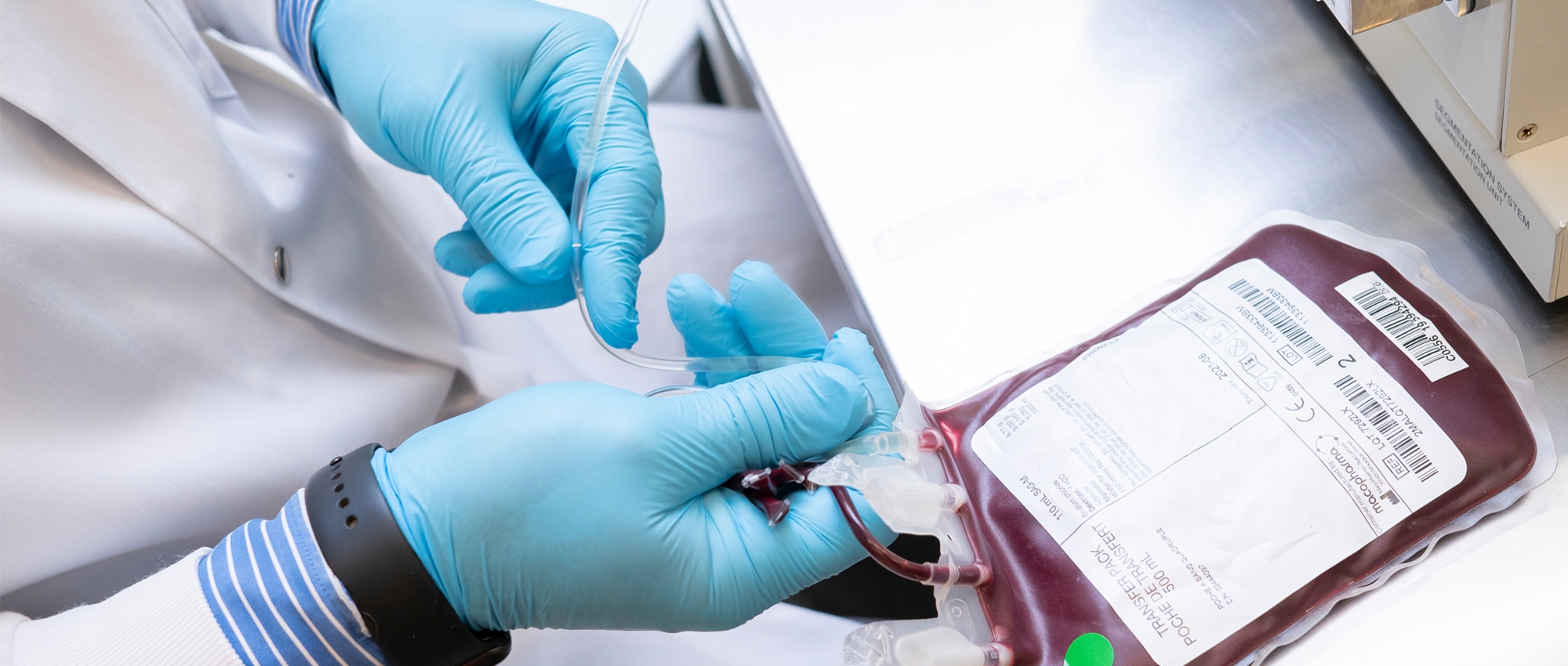What conditions disqualify you from donating blood?
Jan 14, 2022 · General health issues that won’t allow people to donate blood. Having a fever (above 99.5°F) or an acute infection at the time of donation, or feeling unwell, having a cold, flu, or trouble breathing. Receiving a tissue or organ transplant of living animal tissue or a dura matter (brain covering) transplant.
What are the reasons why a person cannot donate blood?
May 11, 2020 · Your age of health should not prevent you from registering as a donor. Most health conditions do NOT prevent donation and age is not a factor. There are very few diseases that would make you ineligible to be an organ donor. Some severe infections, such as viral meningitis, active tuberculosis, Creutzfeldt-Jakob (Mad Cow) disease, and a few others would disqualify …
What kind of blood can you not donate?
Jan 11, 2021 · Factors that may affect your eligibility to donate blood Cold, flu and other illnesses. Donors also are urged to wait to donate until they have completed antibiotic treatment... Medications. The Red Cross says that most medications will not disqualify prospective donors from being able to donate. ...
What to know before you donate blood?

What excludes you from being a blood donor?
Blood and bleeding diseases or issues will often disqualify you from donating blood. If you suffer from hemophilia, Von Willebrand disease, hereditary hemochromatosis, or sickle cell disease, you are not eligible to donate blood. If you have sickle cell trait, it is still acceptable for you to donate blood.Jan 15, 2021
Why would a blood donor be rejected?
There are certain conditions that mean you may never be able to follow the dictates of your community conscience. A history of hepatitis, heart disease, cancer and bleeding disorders, convulsions or AIDS or being in an AIDS risk group will disqualify you.Dec 22, 1988
What diseases prevent you from donating plasma?
People can't donate if they have or had tuberculosis, heart disease (and currently taking medication for it), sickle cell anemia, certain types of cancer, or malaria (contracted in the past three years or travelled to an endemic area in the past year).Nov 12, 2019
What diseases would make you ineligible to be an organ donor?
Some severe infections, such as viral meningitis, active tuberculosis, Creutzfeldt-Jakob (Mad Cow) disease, and a few others would disqualify donation.
What organs can be donated?
When people consider donation, they often think only of major organs that can be donated (heart, lungs, liver, kidneys, pancreas, and intestine). While these gifts are incredibly important for saving lives, other equally transformational gifts are often overlooked.
What tissue can be donated to help children?
Donated tissues like corneas, skin, veins, tendons, bone, heart valves and connective tissue are all essential and help in many ways: Heart valves can be transplanted to save the lives of children born with heart defects, and adults with damaged heart valves.
Why is bone important?
Bone is important for people receiving artificial joint replacements, or replacing bone that has been removed due to illness or injury, for example in hand transplants. Tendons, the elastic-like cords that attach bones and muscles to each other, can be donated to help rebuild damaged joints and help someone walk again.
Can you donate your pancreas if you have diabetes?
Likewise, if a person has diabetes, they might not be able to donate their pancreas but may be able to donate their heart or lungs. Again, doctors will make decisions about what is safe to donate at the time of death.
Can you donate your heart if you have a heart attack?
For example, if someone passes away from a heart attack, they are not going to be able to donate their heart but they may be able to donate their kidneys and liver.
Can age prevent organ donation?
Your age of health should not prevent you from registering as a donor. Most health conditions do NOT prevent donation and age is not a factor. There are very few diseases that would make you ineligible to be an organ donor. Some severe infections, such as viral meningitis, active tuberculosis, Creutzfeldt-Jakob (Mad Cow) disease, ...
Cold, flu and other illnesses
The Red Cross urges prospective donors to wait to donate blood if they:
Medications
The Red Cross says that most medications will not disqualify prospective donors from being able to donate. However, the Red Cross also notes that some medications may require a waiting period after patients take their final dose before they are eligible to donate.
Low iron
Some donors are ineligible to donate because of low iron. Donation center staff conduct screening tests to measure the amount of hemoglobin present in potential donors’ blood. Hemoglobin is a protein in the body that contains iron and carries oxygen to the tissues in the body.
Travel
Potential donors may be ineligible to donate blood if they lived in or traveled to a malaria-risk country in the past three years. Travel destinations will be reviewed at the time of donation, so donors should be ready to answer questions about their travels during their donation appointment.

Popular Posts:
- 1. where to donate sperm in columbus ohio
- 2. who can a positive blood donate to
- 3. where to donate violin
- 4. which political side do the wealthiest people in america donate to
- 5. where to donate a horse tucson
- 6. how do you get the money that your viewers on twich once they donate
- 7. how to donate to the idf
- 8. how long after getting covid vaccine can i donate blood
- 9. where to donate clothing nyc
- 10. blood bank of hawaii how to donate blood for money